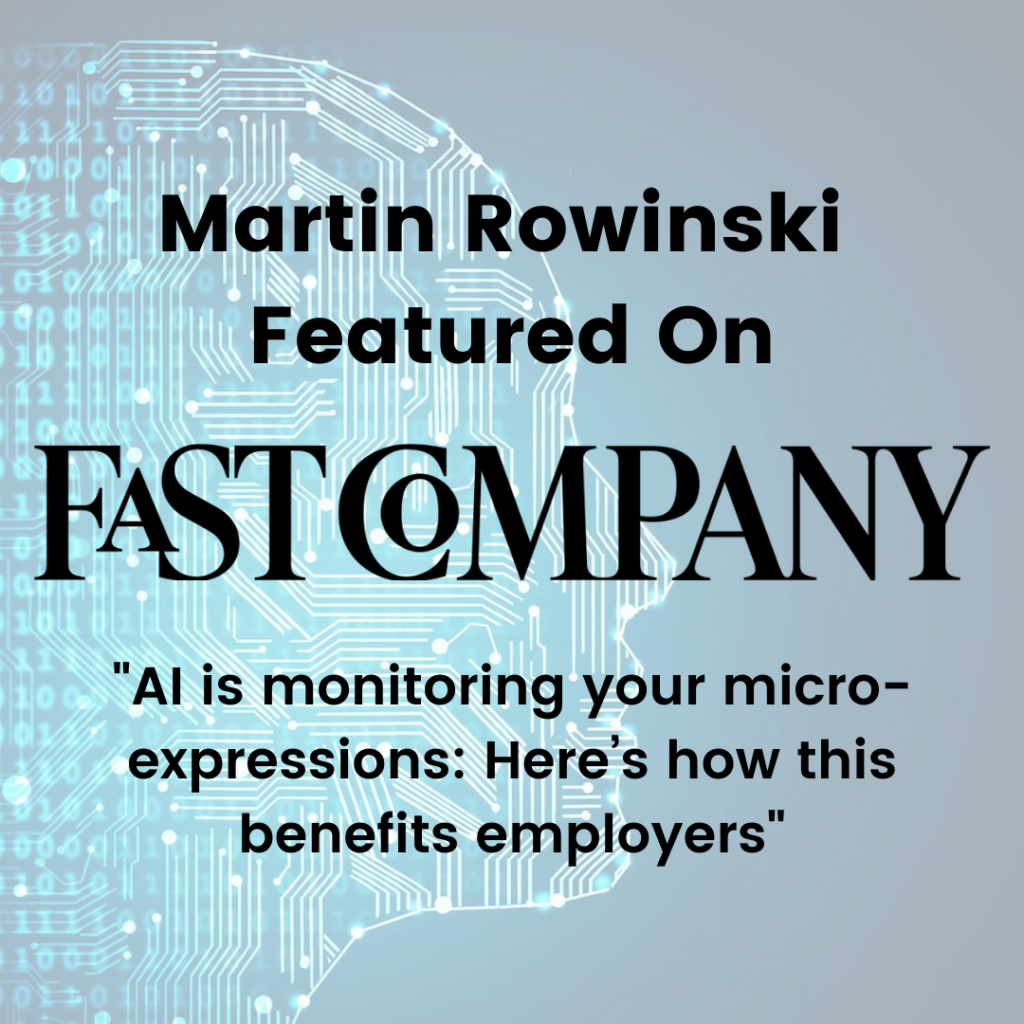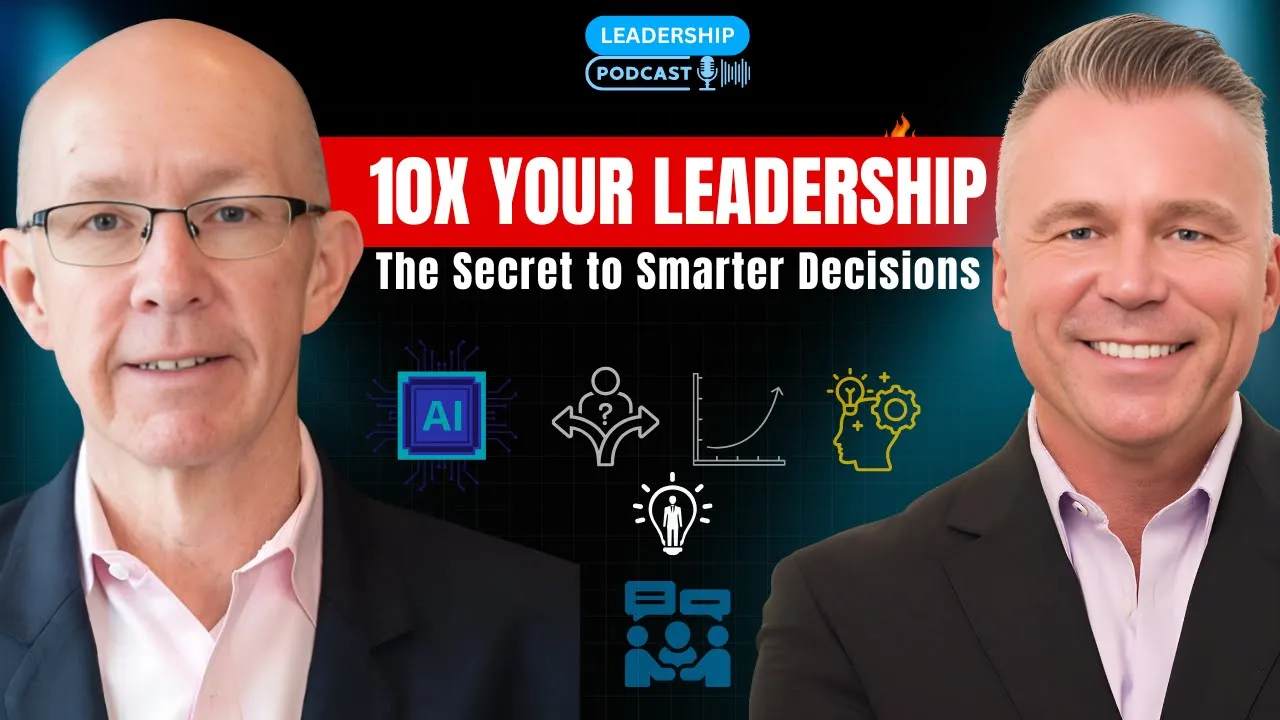By Martin Rowinski
AI can help employers choose better candidates, predict their behavior, and identify their motivation to work.
You may think you’re sitting absolutely still, but your face is almost constantly engaged in micro-expression. When you answer a question, or even just listen to someone else talk, the curve of a lip, lift of the eyebrows, and even the amount you blink can all give off information about your personality. These micro-expressions are likely going a mile a minute during an interview, but each one happens within milliseconds. If you glance away, you might not catch them.
With the help of artificial intelligence (AI)-integrated video to point them out, not only can we see a person’s micro-expressions, but also understand the different aspects they tell us about their personality—the good and the bad. At Boardsi, we use AI in interviews to find a better fit. Our programs track eye movement, tone of voice, and micro-expressions. This knowledge allows us to choose better candidates, predict their behavior, and identify their motivation to work.
FIND REMOTE WORKERS MOST CAPABLE OF HANDLING REMOTE WORK
Remote work is here to stay, which means determining a candidate’s remote work skills will become a new necessity in filling those jobs. With remote workers, the digital environment is largely where you’ll be developing a relationship, so interviewing with AI technology can predict how that might play out. If the remote position requires that they hold Zoom meetings, for instance, AI can interpret their attitudes and behavior over that medium from the first interview.
This is the same technology the FBI and police use to detect lies, so no matter how hard someone tries to hide their discomfort with being on camera, AI can detect it. Someone without any remote work experience can easily read a few articles and claim to be an expert on all the digital tools and managing online interactions. AI-integrated technology ensures that candidates are actually suited for remote work, not just for talking about it.
DELVE DEEPER INTO YOUR OWN PERCEPTIONS
Even the best judge of character would likely benefit from an AI personality analysis to either confirm their intuition or challenge it. The company iMotions, for example, uses an AI module with various facial expression measures, core emotions, and other facial and behavioral scales to capture slight changes in expression and provide feedback on the authenticity of a candidate’s responses. If the AI detects signs that indicate inauthenticity, even when the candidate gave all the right answers, you can go back, watch and confirm for yourself, or set up a second interview to clear up any doubts.
Even without video, AI can pick up a lot of the same information from a candidate’s language processing. The company Yobs integrates directly with Zoom, so you can invite its tool from your calendar to record, transcribe, and analyze what is said. It looks at word choice, structure, and other language preferences rather than facial analysis. Based on the job, it can also recommend interview questions to recruiters that are better at measuring the competencies proven to be relevant to that job. Especially among a hiring team with different biases and interview styles, where only some people hear red flags in a candidate’s use of language and others are on the fence, confirmation from a third-party AI analysis can bring consensus.
WEED OUT THOSE IN IT FOR THE WRONG REASONS
During an interview, people tend to put their best foot forward to make it seem like the job is perfect for them because they want to get hired—not always because they think the job is perfect. When you fill a position, you want someone who will love the work they do, and AI technology can weed out those just looking for a paycheck.
Maybe the analysis from their first interview suggested they were unmotivated by the job, so you use this information to come up with questions that dive deeper into their interests and pursuits to draw out signs of motivation. With your own perception and AI analysis, you can better determine if your candidate’s heart is in it or not.
ADDRESSING ETHICAL AI CONCERNS
While AI can be a valuable tool for companies, there are, of course, some ethical considerations that need to be taken into account. As with all recordings, anyone under the microscope of AI should be made aware that they are being tracked. People have the right to know if they are being recorded or their micro-expressions are being watched.
Additionally, in the same way as any other technology, there is a bias that we need to watch out for when using AI. With interviewing, the most important factor in choosing an applicant will always be the human determinant. AI is merely an extra strategy that can supplement human decisions and opinions.
Remember, we’re not just handing over our decision-making to AI, but rather using it as an additional tool to aid in our decisions. The human touch is more powerful than AI will ever be, but AI makes our abilities as humans more powerful. Using AI-integrated technology for interviewing a new employee or gauging the capacity of an old one to take on a new task can give you more answers than perception alone. The added insight of AI may help you to find more ideal candidates for each position you fill, creating a more ideal team with benefits that echo at every level.









